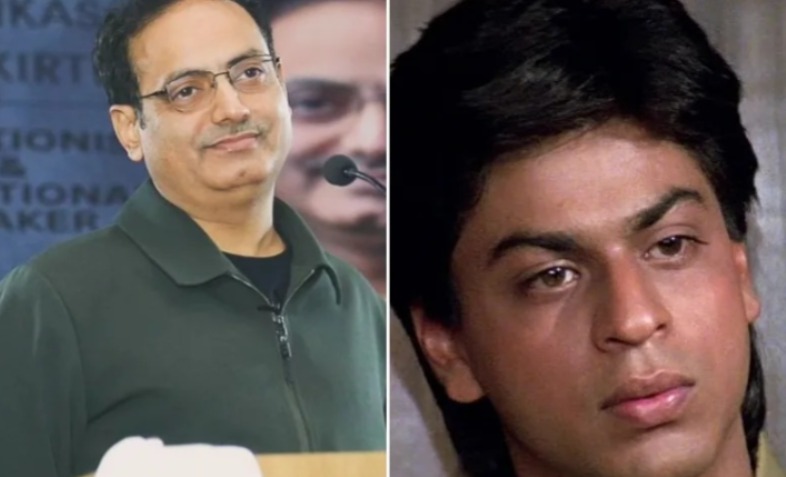[ad_1]
The film featured a song, “Tu haan kar ya na kar, tu hai meri Kiran” (Whether you say yes or no, you are mine, Kiran), which seemed to glorify stalking and downplay the importance of consent. This has sparked a debate due to its problematic depiction of stalking and romantic obsession.
Recently, educator Dr. Vikas Divyakirti questioned the film’s narrative, asking whether Shah Rukh’s character was being positioned as a lover or something much darker. Directed by Yash Chopra and co-starring Juhi Chawla, Darr showed Shah Rukh as a mentally unstable man consumed by an unhealthy obsession, further fueling discussions about how the film romanticized troubling behaviour.
In a chat with We Are Yuvaa’s YouTube channel, Vikas took a massive dig at the movie Darr. “It has Shah Rukh Khan and Juhi Chawla. She says no and he sings ‘Tu haan kar ya naa kar, Tu hai meri Kiran’. Which means that he doesn’t care for her consent. If you say yes, or you say no, you are mine. Yeh lover hai ya rapist hai? Yeh kaisi sense hai? (Is he a lover or a rapist? What sense is this?) This is crude masculinity.”
Dr Divyakirti also draws a parallel to another Yash Chopra film, Kabhi Kabhie, to show a broader issue with cultural representations of women. In Kabhi Kabhie, lyrics suggest that a woman’s existence is solely to fulfill a man’s sense of completion, reducing her to an object rather than an individual with her own aspirations.
“What kind of bossiness is this? What a boss has called her down from the star. She doesn’t have her own life? She doesn’t have her own career? Her own dreams? You just have to be the person who gives me a sense of completion, that’s your only purpose on earth,” he added.
In conclusion, Divyakirti said that even women are heard speaking this way but, socially, it is largely men speaking this language. “Men also get objectified sometimes, and objectification of men is just as bad as objectification of women. But, usually, you will see that this kind of stuff is said in male voices. It absolutely does not mean that women are always right.”
Earlier, Divyakirti had criticized Ranbir Kapoor’s film Animal, calling it a “bad and rude film.”
[ad_2]
